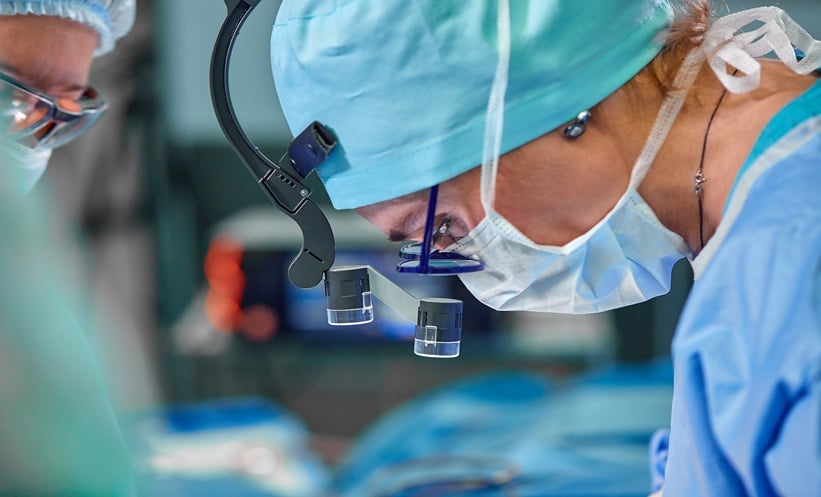This year’s European Society for Medical Oncology (ESMO) Breast Cancer Annual Congress took place in the vibrant and historic city of Munich, Germany, from the 14th to the 17th of May 2025.
The event provided an invaluable opportunity for colleagues from around the world to network, exchange ideas, and unite in their shared commitment to delivering the highest standard of care for people affected by breast cancer. First established in 1975, ESMO was founded with several key missions: to improve the prevention, diagnosis, treatment, and both supportive and palliative care of patients with malignant diseases; to advance the practice and recognition of oncology as a medical specialty; to educate and train those involved in cancer care and research; to uphold high standards in the qualification of medical oncologists; and to promote equitable access to optimal cancer care for all patients.
In addition to the primary annual ESMO Congress, which will be held this year in Berlin, Germany, from the 17th to the 21st of October 2025, ESMO also organises several focused congresses throughout the year. These are tailored to specific areas of oncology, including breast, gynaecological, gastrointestinal, and immuno-oncology. This year’s ESMO Breast Congress delivered some impressive figures, with over 3,600 participants from 103 countries, and 476 abstracts presented. The event reinforced its position as a leading platform for innovation in breast cancer research and care. Nicholas Turner, one of the ESMO Breast Scientific Committee Co-Chairs, along with Erika Hamilton and Masakazu Toi, commented, “It’s a great place to present and discuss your data in a collaborative atmosphere.”
Breast Cancer: Evolving Treatments and What’s Next
On the second day of the congress, a highly insightful panel discussion was held to explore the future of breast cancer treatment. Key topics included the evolving role of immunotherapies, the promising potential of emerging therapeutic agents, and personalised approaches to care for younger patients. The panel featured esteemed experts: Sherene Loi from the Peter MacCallum Cancer Centre in Melbourne, Australia; Ann H. Partridge from the Dana-Farber Cancer Institute in Boston, Massachusetts, USA; and Nicholas Turner from The Royal Marsden, UK. The discussion was moderated by ESMO President, Fabrice André. A select group of press were invited to attend and provide commentary on the session. Throughout the discussion, three key topics were explored: liquid biopsies, immunotherapies, and antibody–drug conjugates.
Loi began by offering a comprehensive overview of immunotherapy in the context of breast cancer. She explained that immunotherapy is now routinely used in the treatment of triple-negative breast cancer, which has long been considered the most aggressive subtype. Loi also served as principal investigator in a randomised Phase III trial, CheckMate 7FL, which assessed the impact of immunotherapy, specifically nivolumab, in a small subset of patients with oestrogen receptor positive breast cancer. Overall, 510 patients were randomised to receive either anthracycline or taxane-based chemotherapy with either intravenous nivolumab or placebo. The trial reported a significantly higher pathological complete response in the immunotherapy arm compared with placebo (24.5% versus 13.8%; p=0.0021).1 Loi described these findings as “a pleasant surprise”, as oestrogen receptor positive breast cancer was previously thought to be largely unresponsive to immunotherapy. Looking ahead, she remarked, “I think this has changed the way we look at certain groups of breast cancer that express the oestrogen receptor. We’ll be potentially treating these more like triple negative or more with a chemotherapy immuno-therapeutic approach in the future.”
Partridge went on to discuss the prevalence of breast cancer in younger women (aged ≤40) and the need for a tailored approach to address their specific challenges. She highlighted the global rise in breast cancer incidence among this age group, noting that younger women are more likely to develop biologically aggressive subtypes, such as triple-negative breast cancer. While comprehensive support is vital for all patients, Partridge emphasised the unique “figurative and emotional scars” experienced by young women navigating a diagnosis at such a formative stage of life. These challenges may affect their education, career progression, peer relationships, and family planning, particularly as breast cancer treatments can have an impact on fertility.
Finally, Turner highlighted the importance of liquid biopsies in monitoring treatment response. Liquid biopsies are non-invasive diagnostic approaches that analyse bodily fluids to detect cancer cells or fragments, such as circulating tumour DNA. This method also enables the identification of mutations in circulating tumour DNA, offering valuable insights into disease progression and the development of treatment resistance. By detecting resistance at an earlier stage, clinicians are better equipped to make timely and informed decisions regarding second-line therapies.







